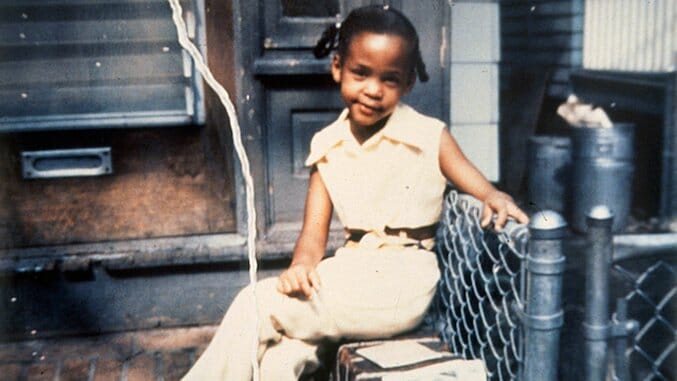Showtime’s Whitney: Can I Be Me Confirms Some Rumors, but Breaks No New Ground
Photo: REX/Shutterstock via SHOWTIME
Five years after her death, the name Whitney Houston conjures up so many images. The legendary, powerhouse singer on stage with sweat pouring down her face as she hits impossible notes and musical runs with her voice. Her perfect smile while picking up another Grammy, acting in The Bodyguard, marrying Bobby Brown, holding Bobby Christina in her arms. Then the downward spiral, as they say, when the years of sampling drugs turned into abuse. Then the “Whitney and Bobby” tabloid years, the trainwreck reality show, the failed stints in rehab, the divorce and, finally, the comeback that ended before it began in a Beverly Hills hotel room.
Showtime’s new documentary, Whitney: Can I Be Me focuses on Houston’s last great concert tour in 1999—when she still had the voice, although never-before-seen backstage footage clearly shows that the drugs and partying were beginning to wear her down. While the documentary offers strong concert performances and an array of opinions on her enormous talent and tragic demise from those in her band, her entourage, friends and family, it contains no major revelations (Versus, say, the Hulu documentary Batman and Bill, in which we find out that the creator of the comic hero wasn’t really the creator.). Instead, there’s a mix of old and new: old awards show footage, old audio of Houston talking about her feelings and her career (“Success doesn’t change you, fame does.”), new interviews with those in her orbit, new concert footage. These dynamic performances will only remind fans of what they already know: With the death of Whitney Houston, we lost an unmatched talent.
Surprisingly, Brown comes off well in the documentary and is very close to vindicated. Everyone featured in the film talks of his love and devotion for Whitney. “They just had a chemistry, that for whatever reason, worked for them,” says former Arista Records executive Doug Daniel. While Whitney doesn’t shy away from the sometimes detrimental effect the two had on each other (including a nod to Brown’s philandering), it does show very funny, intimate, caring scenes between the two. As Whitney’s brother, Michael, clearly says—and as has often been reported—the singer was exposed to drugs during her teen years in Newark, N.J., and not through Brown. What started as a teen partying past time, according to Michael and other childhood friends, grew into an addiction as Houston found it more and more difficult to deal with fame, the need to keep family and friends financially secure and, her role as breadwinner once Brown’s career had waned.
In one bit of footage outdoors at a restaurant and again, at a park, Brown is seen trying to tenderly communicate with Whitney and it is obvious that she would rather stay in her world of denial rather than listen to him.
The long-held animosity between Brown and Houston’s BFF, Robyn Crawford, can also be seen backstage in 1999, with a sarcastic Brown faux-hugging Crawford as she tries to get away. Those interviewed conclude that both were vying to be first in Whitney’s life: “Bobby Brown and Robyn Crawford were like fire and ice. They hated each other,” says Houston’s former bodyguard, David Roberts. “They’d battle for her affections. Bobby and Robyn had some physical altercations, and there were times where he wasn’t always the winner.”
-

-

-

-

-

-

-

-

-

-

-

-

-

-

-

-

-

-

-

-

-

-

-

-

-

-

-

-

-

-

-

-

-

-

-

-

-

-

-

-








































